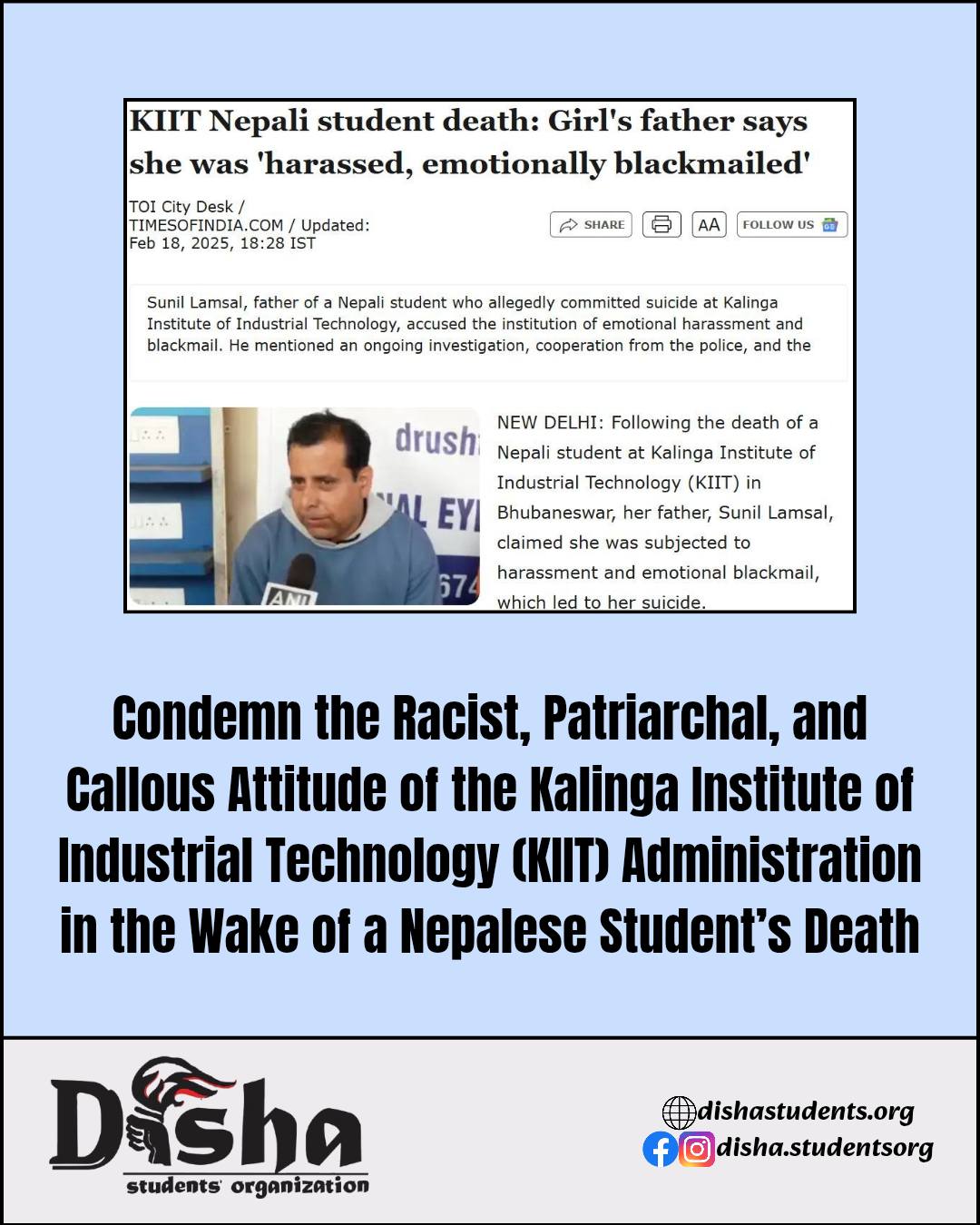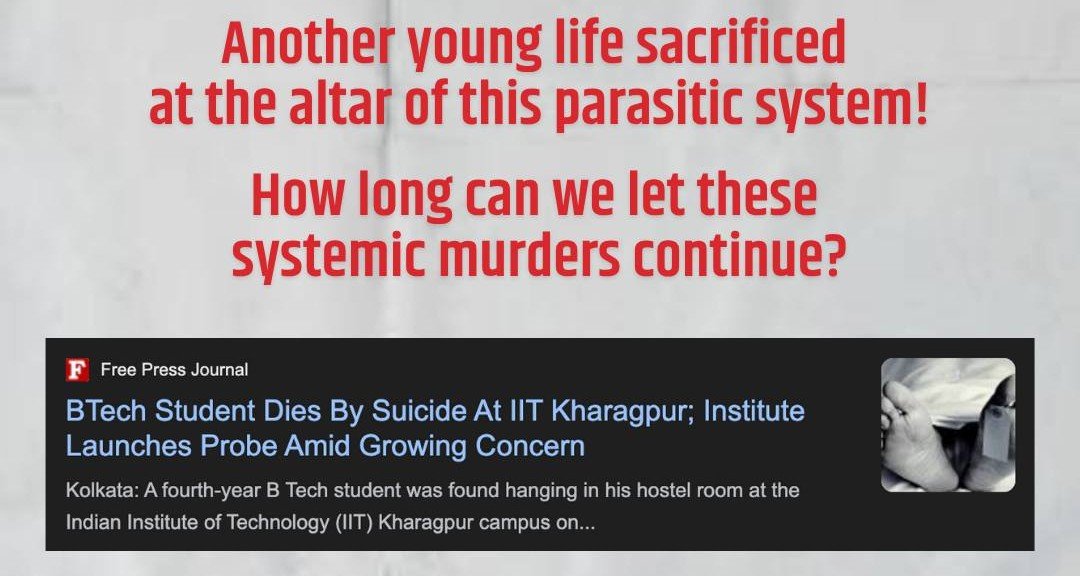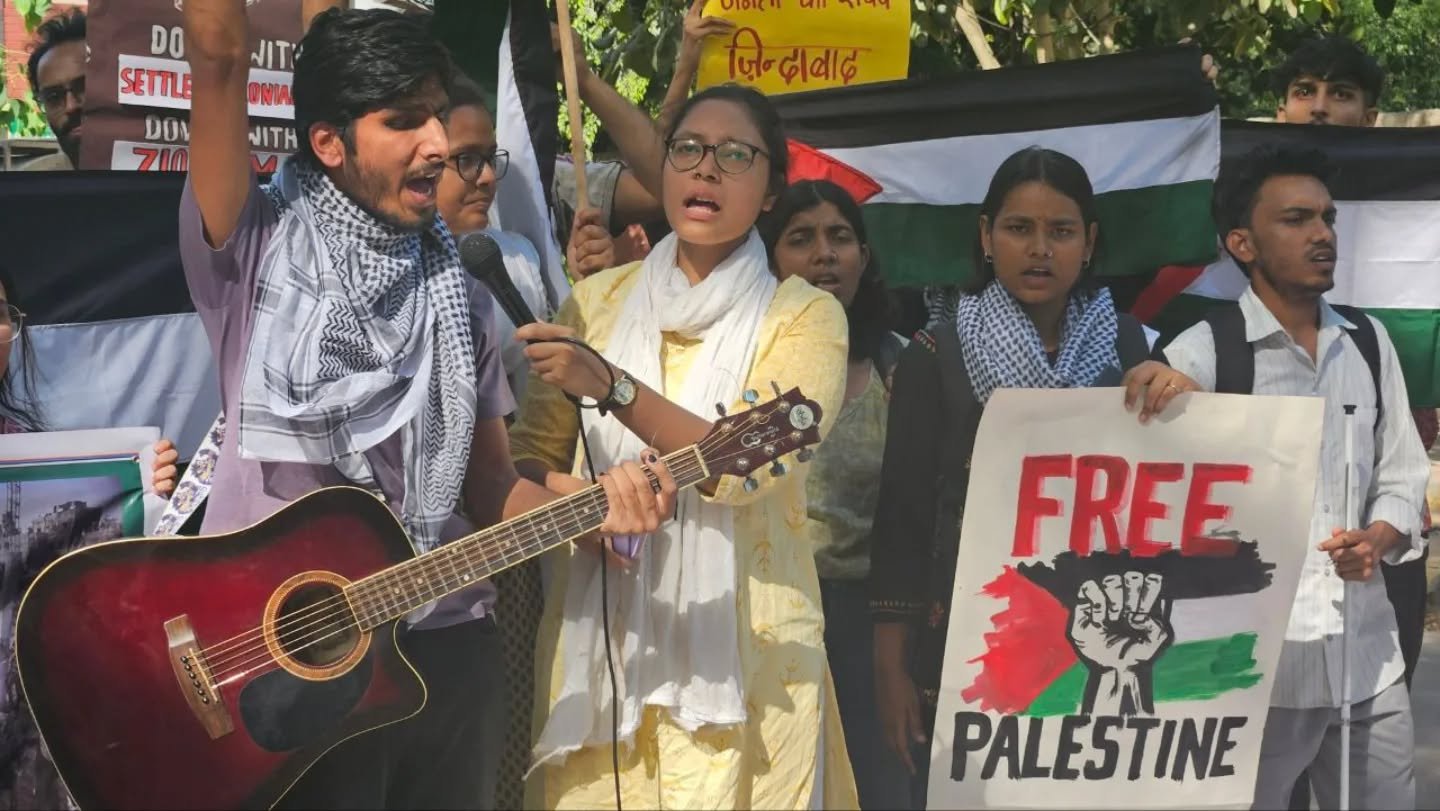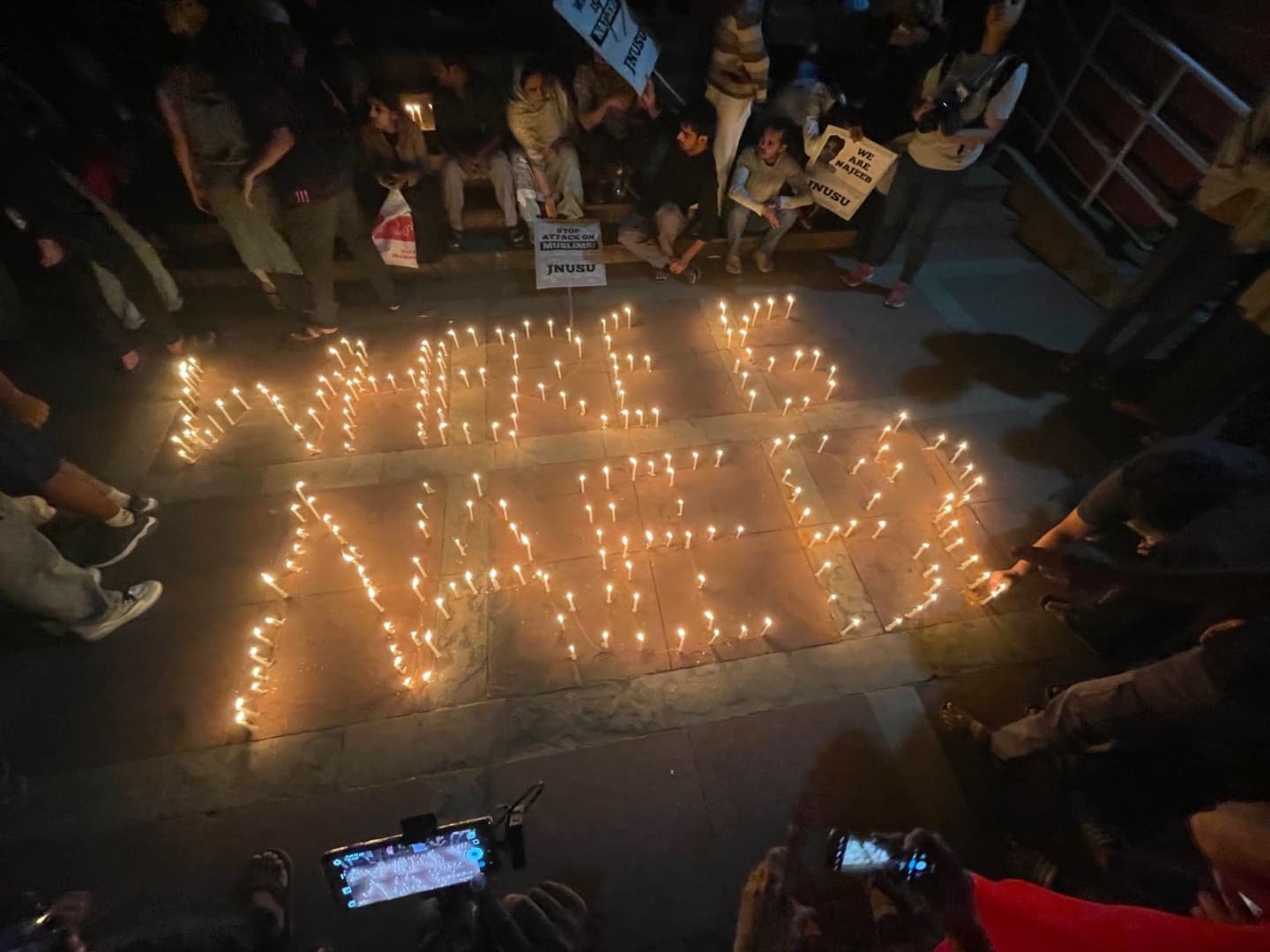Disha Students’ Organization strongly condemns the racist, patriarchal, and callous attitude of the administration of Kalinga Institute of Industrial Technology (KIIT), Bhubaneswar, and their insensitive handling of the case involving the death—allegedly by suicide—of a Nepalese student at the institute. The deceased student, Prakriti Lamsal, was a third-year B.Tech student found dead in her hostel room on February 16. It has come to light that Prakriti was subjected to both physical and verbal abuse by a 21-year-old B.Tech (Mechanical) student at the same institute. Shockingly, Prakriti had previously complained to the International Relations Office of KIIT about the abuse and mental harassment she was enduring. However, the KIIT administration failed to respond to her complaint. Had the administration acted promptly and responsibly, Prakriti’s life might have been saved. While the police have registered a case of suicide and arrested the main accused, Advik Shrivastava, for abetment of suicide, the circumstances surrounding her death raise serious questions and have justifiably sparked protests on campus.
Following Prakriti’s tragic death, Nepalese students at KIIT protested, demanding a thorough inquiry and accountability from the administration. The protesting students accused the KIIT administration of ignoring Prakriti’s pleas for intervention. Instead of addressing the students’ demands, the authorities responded with racist slurs and intimidation. In a viral video, a senior KIIT official is heard saying, “Do not insult the founder of this university. The man is feeding 40,000 students for free. Such an amount would even exceed your country’s entire budget.”
The administration’s response did not stop at verbal abuse and intimidation. On February 17, the institute declared that it was closing *sine die* (indefinitely) for all international students from Nepal. It is important to note that around 1,000 Nepalese students are enrolled at KIIT. Hundreds of these students were forcibly evacuated from the campus. Videos surfaced showing them being herded onto institute buses and taken to the railway station in Cuttack, leaving them to fend for themselves. Many students did not have return tickets or the financial means to travel back to their homes.
After the video of the incident went viral, sparking international outrage and even prompting diplomatic intervention from the Prime Minister of Nepal, the KIIT administration has attempted damage control by asking the students to return and resume classes. However, this entire episode raises serious concerns. The attitude of KIIT reflects a deeply entrenched racist and paternalistic mindset toward Nepalese students, which is unfortunately widespread among India’s elite. Notably, KIIT was founded and is run by veteran Biju Janata Dal (BJD) leader and former MP Achyuta Samanta.
This incident is not an isolated one. Across India, the administrations of universities and colleges have often displayed a callous and hostile attitude toward foreign students. The democratic rights of international students are frequently disregarded, and they are expected to remain silent in the face of injustice. When it comes to students from less developed neighboring countries like Nepal, the hostility is even more pronounced, reflecting the expansionist and “big brotherly” mindset prevalent among India’s elite. Such a toxic combination of racism, paternalism, and patriarchal authoritarianism is a recipe for disaster, as evidenced by the tragedy at KIIT.
Disha Students’ Organization believes that a relentless struggle must be waged against such racist, callous, and patriarchal behavior by authorities across the country. Students must stand in solidarity not only with the struggles of Indian students but also with those of international students.
We Demand:
1. An independent inquiry into the circumstances leading to Prakriti’s death, and punishment for those found guilty.
2. Action against officials involved in the racist, high-handed, and callous treatment of Nepalese students.
3. An unconditional apology from the KIIT administration to all Nepalese students for its insensitive behavior.
4. Compensation for the monetary losses incurred by students due to the institute’s decision to force them to leave the premises.




